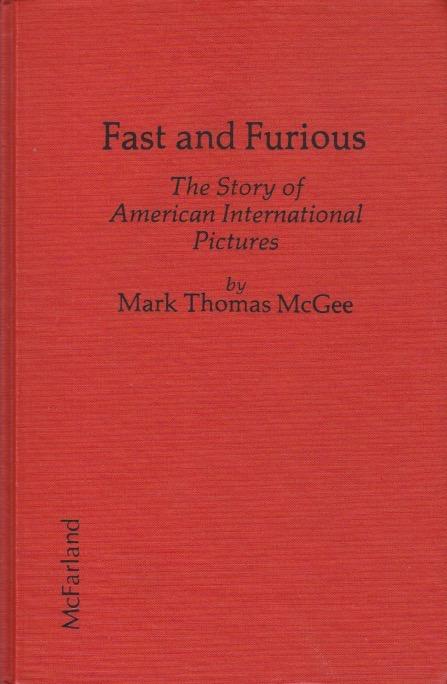
If you’re born without it, you get by any way that you can. Capital, that is. Those of us who inherit nothing but active minds don’t stand a chance, really. Without connections or the cash to draw others in, we tend to be scrappy. And cheap. This is probably the reason I’m drawn to characters like Ed Wood, and those who started American International Pictures. I get the sense that Mark Thomas McGee must be an interesting guy. After all, he met some of his idols when he was young. Fast and Furious: The Story of American International Pictures is available in a second edition, I know, but I tend to find first editions fresher. They say what’s really on an author’s mind. Besides, used books have their own charm.
Although American International Pictures (AIP) was early on known for fast shooting schedules and cheap effects, it eventually started to earn some mainstream respectability before the company being acquired by Filmways. Along the way they engaged some famous champions of cheap, such as Roger Corman. A number of films discussed in this book were part of my childhood. And as someone who’s always had to live cheaply (I just don’t comprehend finance), I found this an extremely hopeful book. Some of these folks never became famous in the lifetimes, but they left a legacy. And that’s a worthy goal. I suspect that for those of us who can’t break into mainstream publishing, blogging is about building a legacy. What some of us want, however, is to appear in print.
And I mean in print. The book is an object. I bought this one used. I sometimes find interesting things in used books. The former owner of this one (a McFarland hardcover!) carefully glued postcards of AIP movie posters to the covers and endsheets. They didn’t put their name in it, but they (in pencil) ticked off the movies, presumably that they’d seen, from the filmography. This is a person after my own heart. I tend not to write in most books anymore, realizing that someday someone will probably sell them and, hey, it’s hard enough to make money in the book business. But this personalization is something you can’t find in an ebook. No, a book is meant to be held and loved. This one clearly was. As publishers chase more and more after electronic and audio books (the latter of which are also electronic) and learning moves from reading to watching, we’re losing something. They’re called books, and they bear their own meaning.
